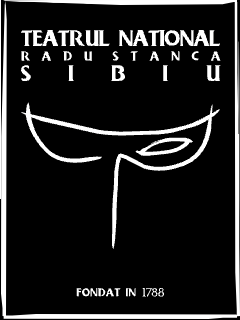The "Radu Stanca" National Theatre of Sibiu (TNRS) presents in May the premiere of the play "The Trial" by Franz Kafka, directed by Botond Nagy. The preview is scheduled for May 24, and the premiere on May 25, at 7:00 PM, at the Factory of Culture. "The premiere of the German Section of TNRS is how we mark the Kafka Centenary, through an exceptional premiere based on one of the most acclaimed works by the German-language author. We invite the audience to enjoy a unique performance, in which the actors from both sections of our National Theatre and young students will stage what is probably the most representative work of Franz Kafka. The show offers subtitles in Romanian so that even those who do not speak German can equally enjoy this performance, as well as translation into English," stated Constantin Chiriac, the general director of the TNRS.
The new production brings together actors from the TNRS and students from the Department of Theatre Art in Sibiu: Gyan Ros Zimmermann, Daniel Bucher, Emőke Boldizsár, Viorel Rață, Eva Frățilă, Ada Bicfalvi, Isabela Haiduc, Malena Silberschmidt, David Guță, Daniel Plier.
"In a world so turbulent, we often have the sensation that we are living in a simulation. That our life is nothing but a marathon in a labyrinth where we define our religion, destiny, love, dreams, as benches of rest. Sometimes we stop. Kafka's Trial captures the surreal feeling of being suspended between a dream and a distant memory. Joseph K's story traverses themes of time, dream states, the afterlife, healing, and consciousness," says director Botond Nagy.
The show is scheduled at the Factory of Culture - Lulu Hall.
"With the Factory of Culture coming under the management of the TNRS, we are planning projects to enhance this space so that the audience has greater access to performances. For this reason, we have scheduled this show at Lulu Hall, and in parallel, other productions like The Mine or The Seagull are adapted and will be played in these spaces," added Constantin Chiriac.
Tickets have been put on sale at the Theater Agency in Sibiu and online at www.tnrs.ro
ADDITIONAL DETAILS ABOUT THE SHOW THE TRIAL Adaptation: Diana Nechit based on the novel by F. Kafka
Cast: Gyan Ros Zimmermann, Daniel Bucher, Emőke Boldizsár, Viorel Rață, Eva Frățilă, Ada Bicfalvi, Isabela Haiduc, Malena Silberschmidt, David Guță, Daniel Plier - voice
Director: Botond Nagy
Set design: Alin Gavrilă
Costumes: Ioana Ungureanu
Music & sound design: Claudiu Urse
Video & light design: Cristi Niculescu
Dramaturgy: Diana Nechit
Choreography: Adriana Bârză Cârstea
Head of the German section: Hunor Horvath
Project Manager: Daria Ciobanu
Photo & video: Andrei Văleanu
Graphics: Cristian Urse
Choreography assistant: Isabela Haiduc
Text translation & subtitles: Ioana Moldovan
Marketing assistant: Antonia Ecatrinescu, Violeta Buduleci
Technical director: Nicolae Văcariu
Sound: Alex Androniciuc
Lights: Sergiu Pașcalău
Props: Nicu Dogariu
Cabins: Angelica Cosma
In a world so turbulent, we often feel like we are living in a simulation. That our life is nothing but a marathon in a labyrinth where we define our religion, destiny, love, dreams, as if they were benches for resting. Sometimes we pause. Kafka's The Trial captures the surrealist feeling of being suspended between a dream and a distant memory. The story of Joseph K touches on themes of time, dream states, the afterlife, healing, and consciousness. Joseph K's story is our daily story where we are often overwhelmed by the questions of the future.
The first day of school - what will it be like?
The first bike ride - will I fall?
The first kiss - what will I feel?
The first day in a strange place - how will I survive?
The first day with our child - will I be good enough?
The first parent buried - is there a beyond?
How does life actually work? What are its laws? Where are the files of our innocence kept? Are we cycles of dust, living better or worse days, without knowing why the ink of our life's printer runs out?
Where does control really lie? Can we truly control our lives or do we just have that illusion? Is control driven by its own need to control?




.jpg?locale=en)
 TNRS
TNRS %20(1).jpg?locale=en)
.png?locale=en)
%20(1).jpg?locale=en)


